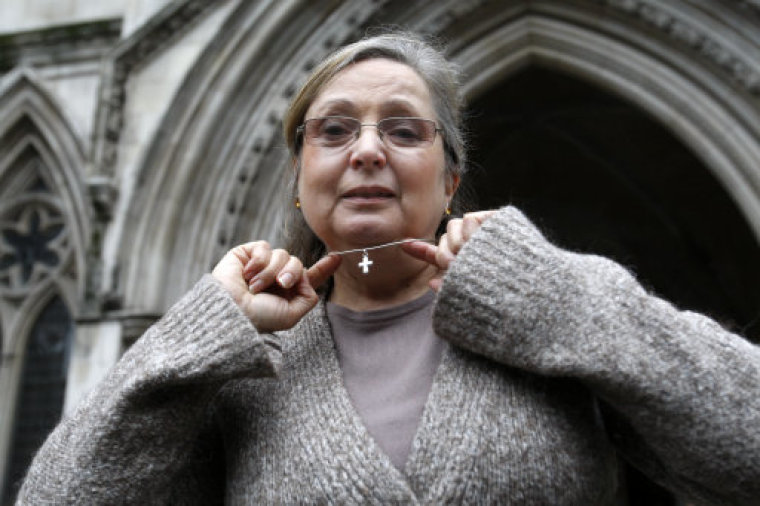
Lord Justice Sedley upheld the Employment Appeal Tribunal's November 2008 ruling determining that the airline's ban did not constitute religious discrimination.
He said: "This case has perhaps illustrated some of the problems which can arise when an individual asserts that a provision, criterion or practice adopted by an employer conflicts with beliefs which they hold but which may not only not be shared but may be opposed by others in the workforce. It is not unthinkable that a blanket ban may sometimes be the only fair solution."
Ms Eweida was dismissed without pay in 2006 when she refused to cover up her cross necklace behind her neck scarf. She argued before the Employment Tribunal in 2008 that she should be allowed to wear her necklace because Muslim and Hindu employees were permitted to wear headscarves and turbans but the Tribunal ruled in favour of BA.
Former Archbishop of Canterbury, Lord Carey of Clifton, said today's ruling by the Court of Appeal was a "sad blow" for the cause of religious liberties and freedoms.
"Her courage and endurance since 2006 when she was sent home from work for wearing a cross have been an inspiration to so many of us," he said.
"Sadly, the failure of this appeal is likely to lead to further cases of religious discrimination. I believe it is not an exaggeration to say that people of faith are facing particular hardship in a period where different freedoms and rights are being tested against each other."
Ms Eweida will now take her case to the Supreme Court. She is being supported in her bid by Liberal Democrat Shadow Chancellor Dr Vincent Cable, who said they would "fight on over this important issue of principle and freedom of expression".
Ms Eweida's legal representative Corinna Ferguson, a legal officer with civil rights group Liberty, said the Court of Appeal's ruling "would do little to build public confidence in equality laws protecting everyone".
She said: "We have every hope that the highest court in the land will put Britain's long tradition of religious tolerance into modern legal practice."